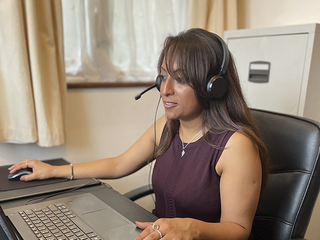Treatment for relapsed acute lymphoblastic leukaemia (ALL)
Sometimes ALL can relapse, which means the ALL comes back after treatment. If this happens, your hospital team will talk to you about further treatment options, including clinical trials.
Treatment options
As many as nine out of ten adults with ALL (90%) will go into remission, although this doesn’t necessarily mean that they’re cured.
Unfortunately, some people relapse (the ALL comes back). Relapse happens because some leukaemia cells remain, often because they’ve become resistant to the drugs people are being treated with.
If you do relapse you may be offered the opportunity to go on a clinical trial looking at new treatments for relapsed ALL.
Usually, the first step in treating relapsed ALL is to repeat the remission induction programme. This treatment might need to be more intense than the first time around.
In trials, a second go at remission induction using chemotherapy has worked for around four out of ten people (40%).
New drugs for ALL
There are two new drugs called blinatumomab and inotuzumab which are available on the NHS for relapsed ALL.
These drugs are known as monoclonal antibodies − they work by attaching themselves to the leukaemia cells, so your immune system can find these cells and kill them. They have shown promising results in clinical trials and tend to have fewer unpleasant side effects.
Stem cell transplant
If your treatment is successful this time round and you go into remission (CR), your healthcare team may recommend a stem cell transplant.
Palliative care
Some people may decide not to have active treatment any more. Instead they can ask for palliative care, which focuses on relieving their cancer symptoms and improving their quality of life.
Treatment for relapsed Philadelphia positive ALL
If you have Philadelphia positive ALL and you relapse after chemotherapy with imatinib (or it doesn’t put you in remission in the first place), your hospital team may offer you more chemotherapy with a different TKI (tyrosine kinase inhibitor).
Dasatinib is a TKI that can be used for people who have relapsed or not responded to treatment including imatinib. Ponatinib is another option that doctors can recommend.
CAR-T therapy
There is also a new treatment called CAR-T therapy, which is approved for some people with relapsed ALL. T cells (a type of white blood cell) are removed from the body and altered in a lab to make them more effective at killing leukaemia cells. They are then put back into the body.
CAR-T therapy may offer people with hard-to-treat ALL another treatment option.
See our information on CAR-T therapy.

Worried about anything or have questions?
If you need someone to talk to, please don't hesitate to contact our Support Service by phone or email.
